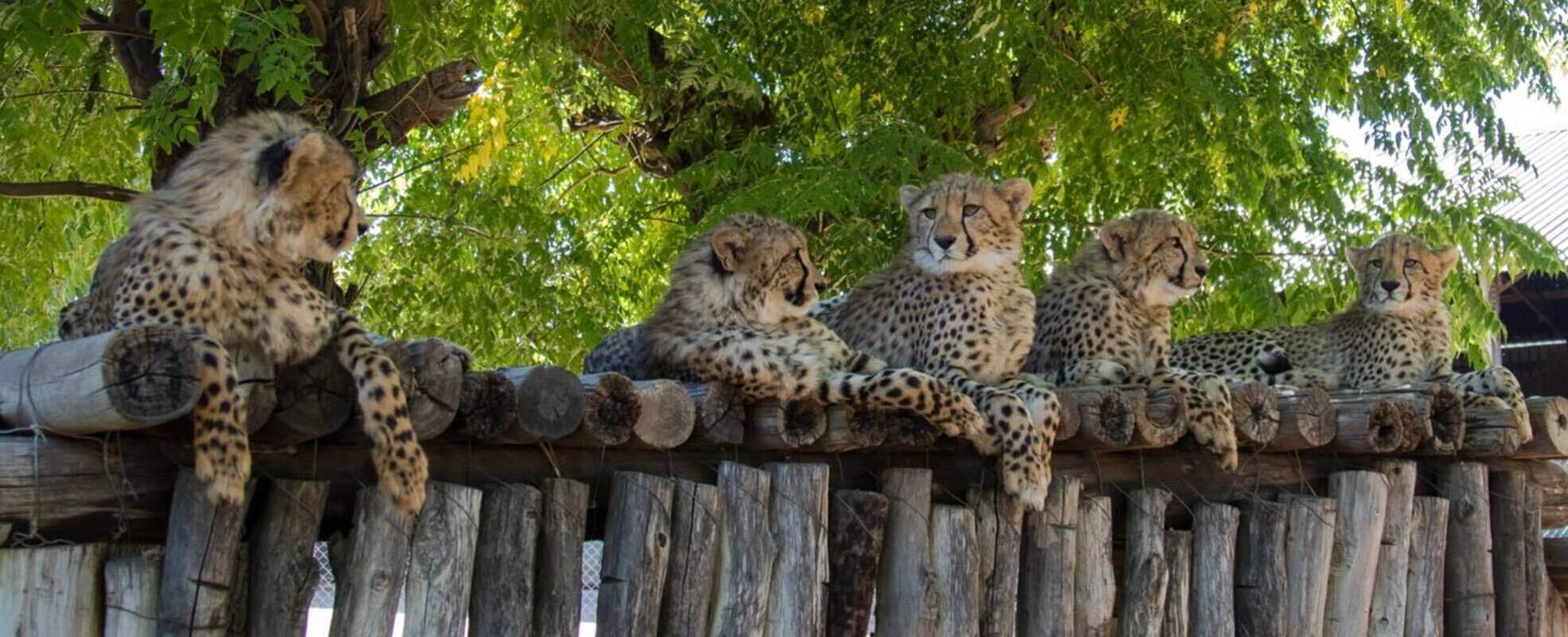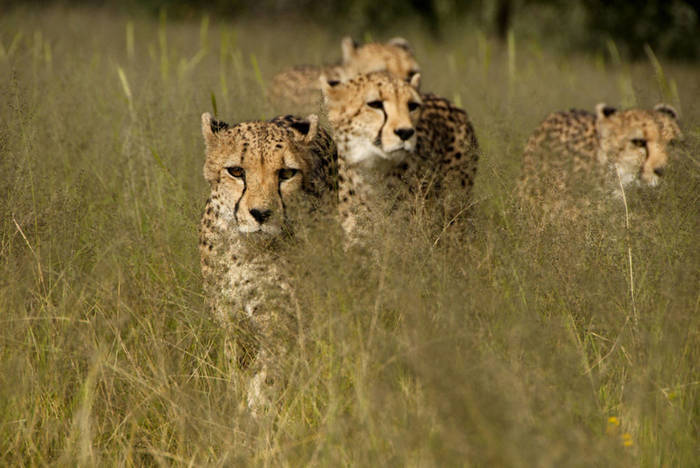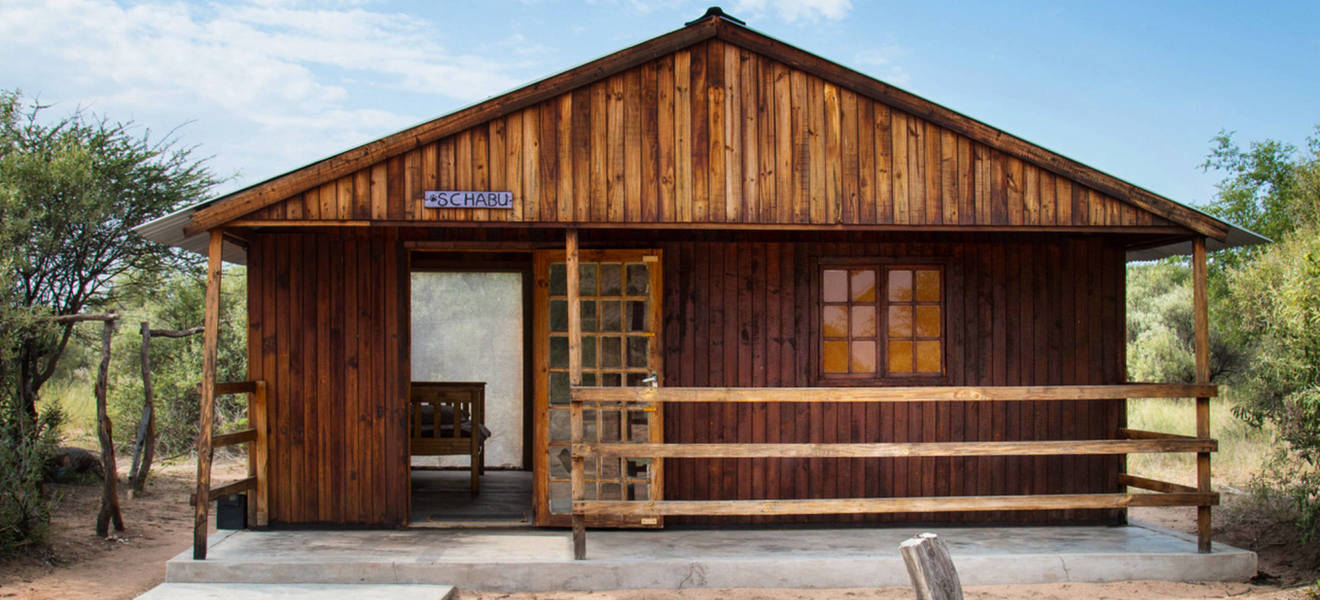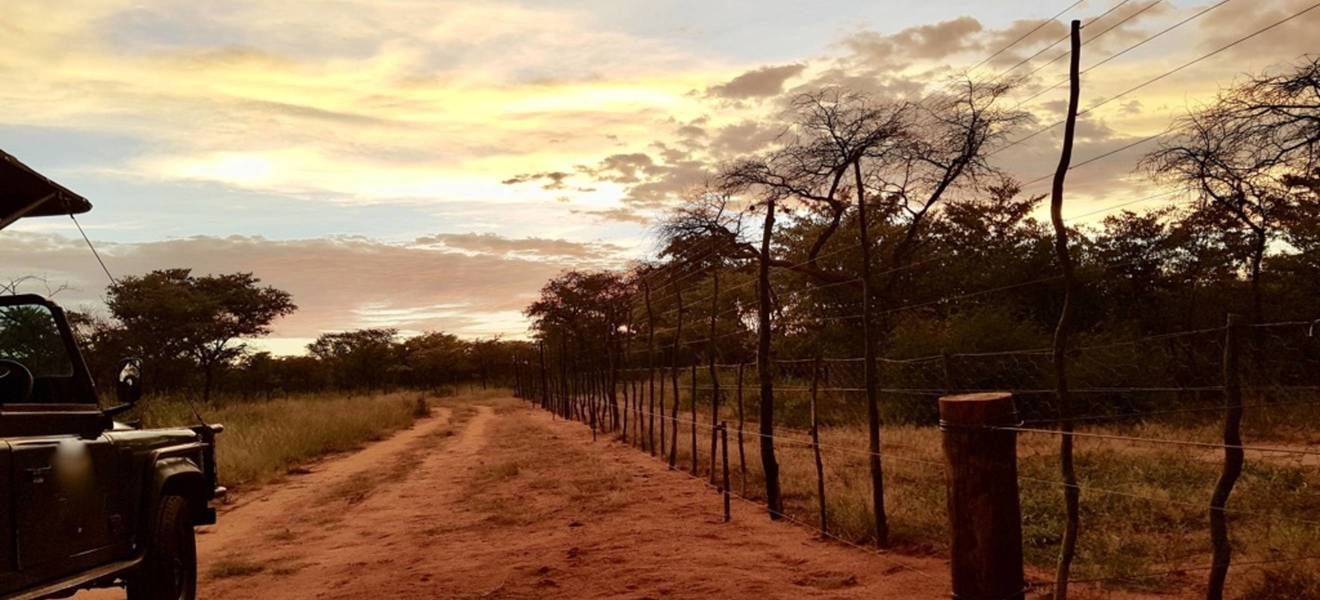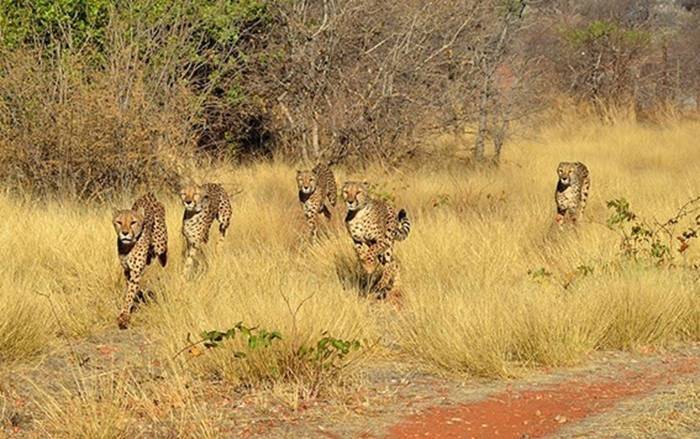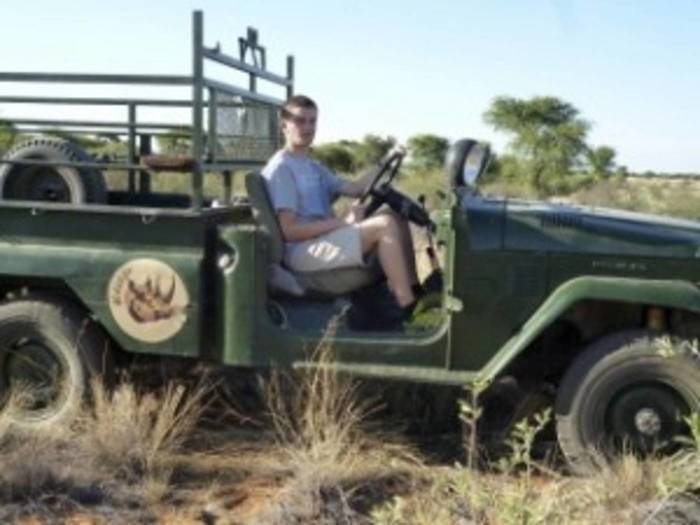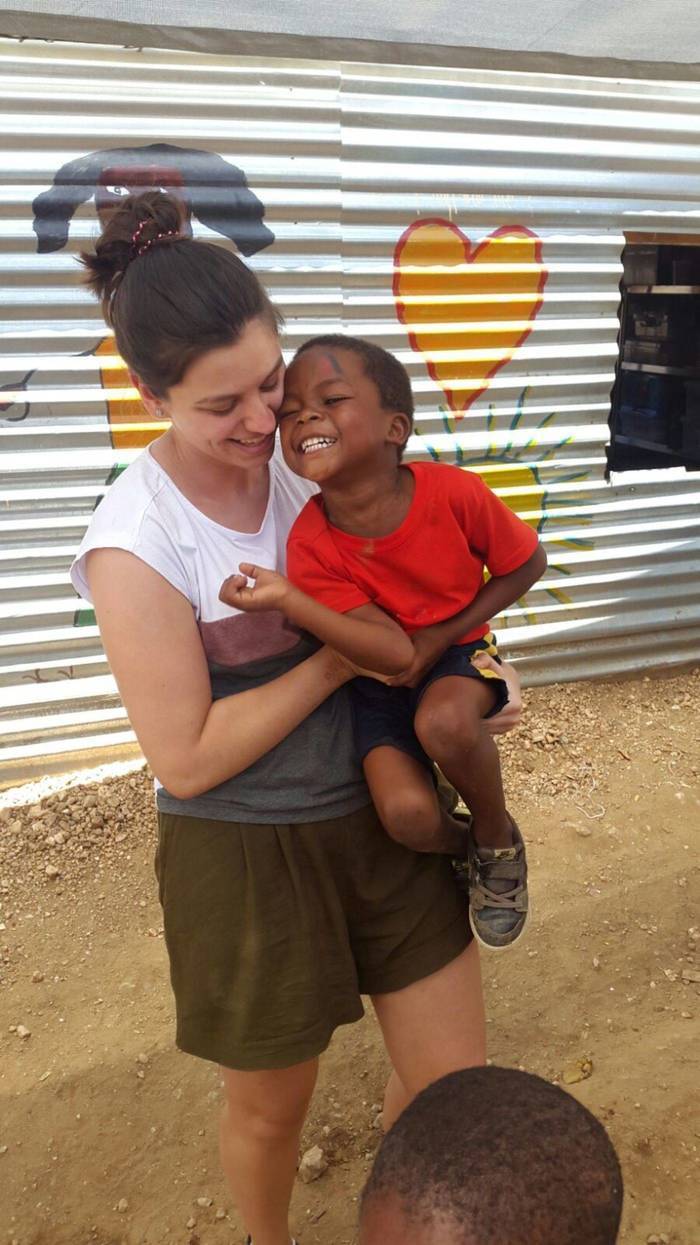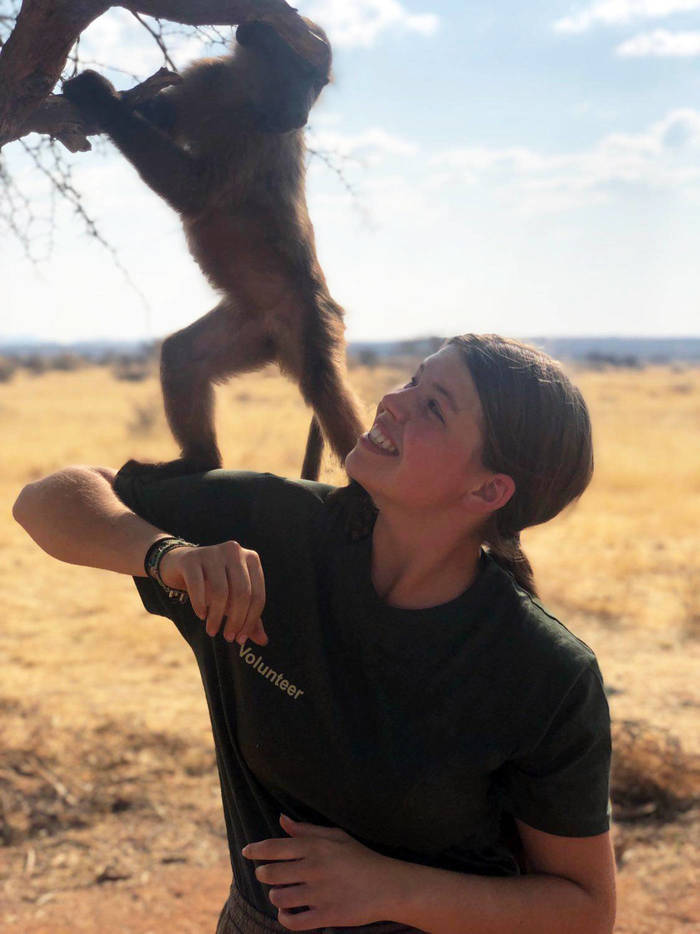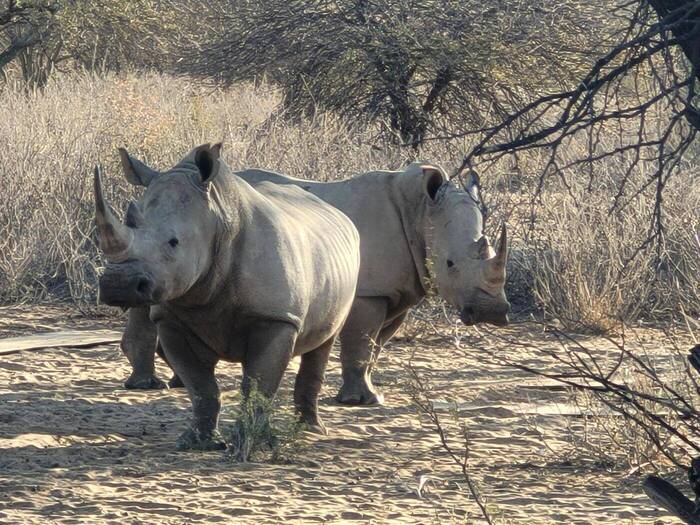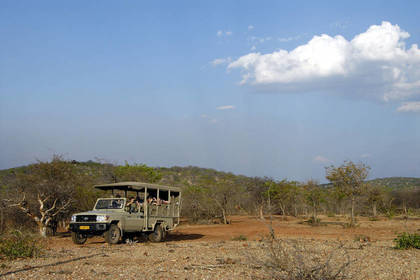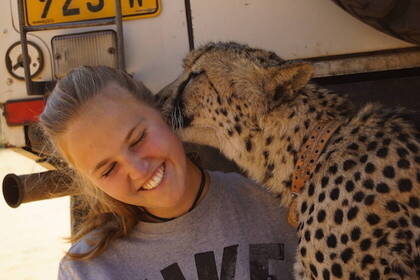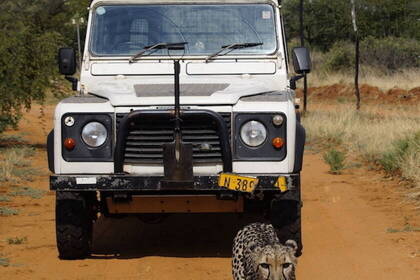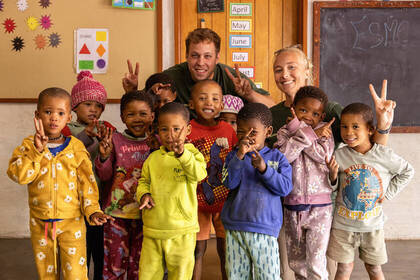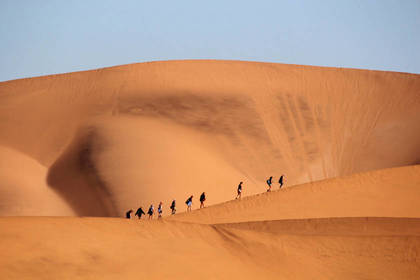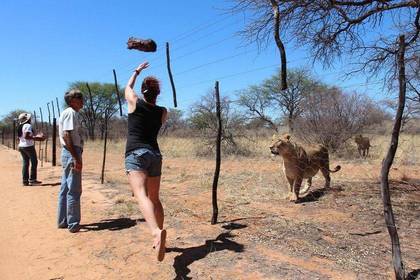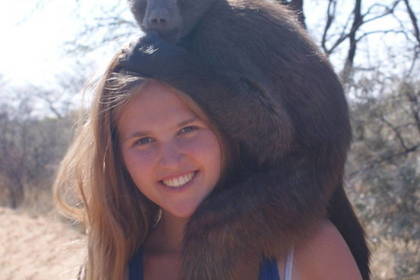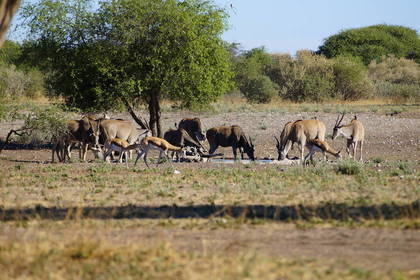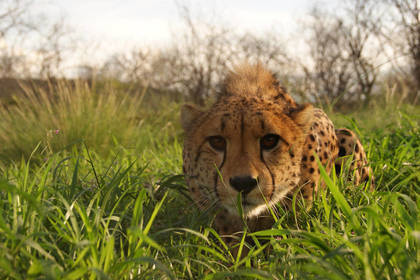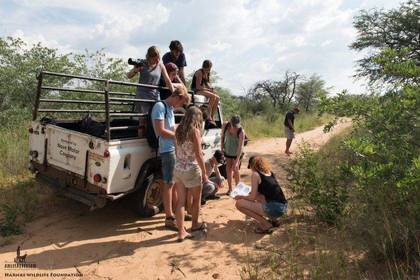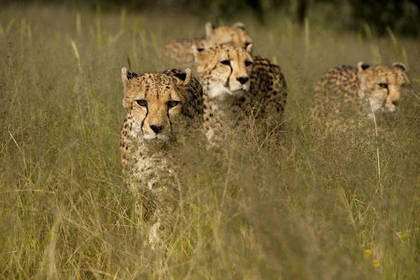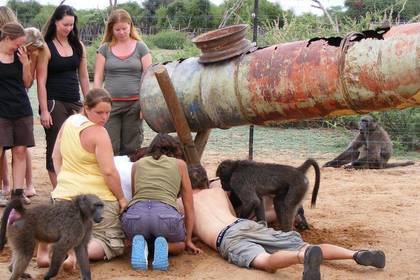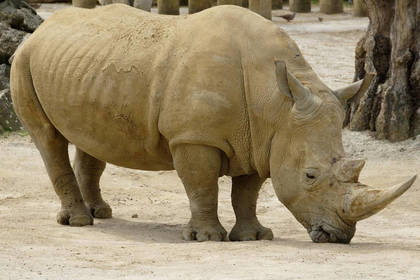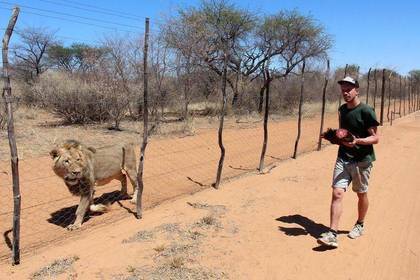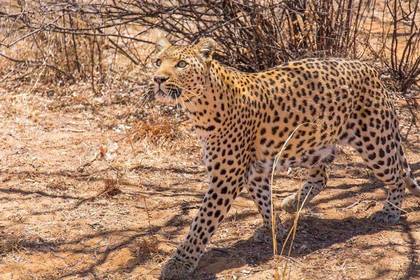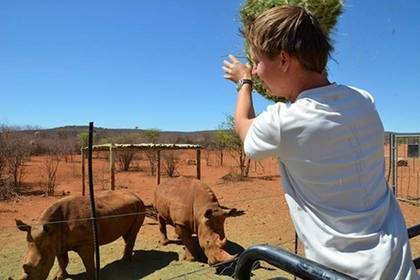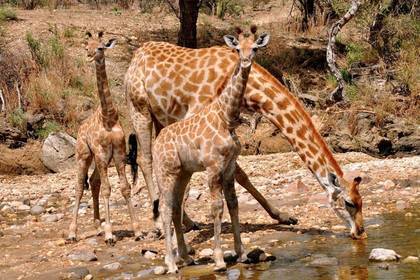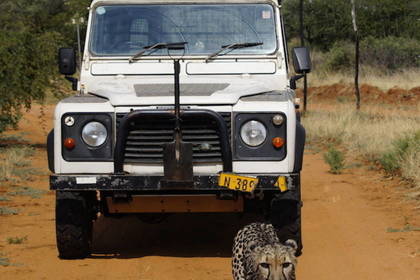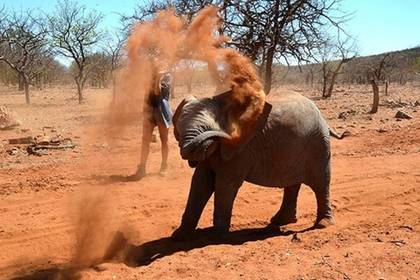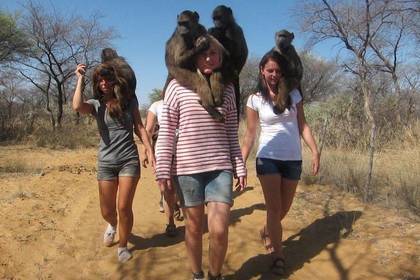Animal welfare for African wildlife in Namibia
- In the middle of nature
- animals in the wild
- Work outdoors
In this project you are committed to endangered species and contribute to the conservation of nature and wildlife. For example, you can help with feeding, do research work or work in animal care. Depending on your interests and previous knowledge, you can contribute wonderfully to this wildlife project.
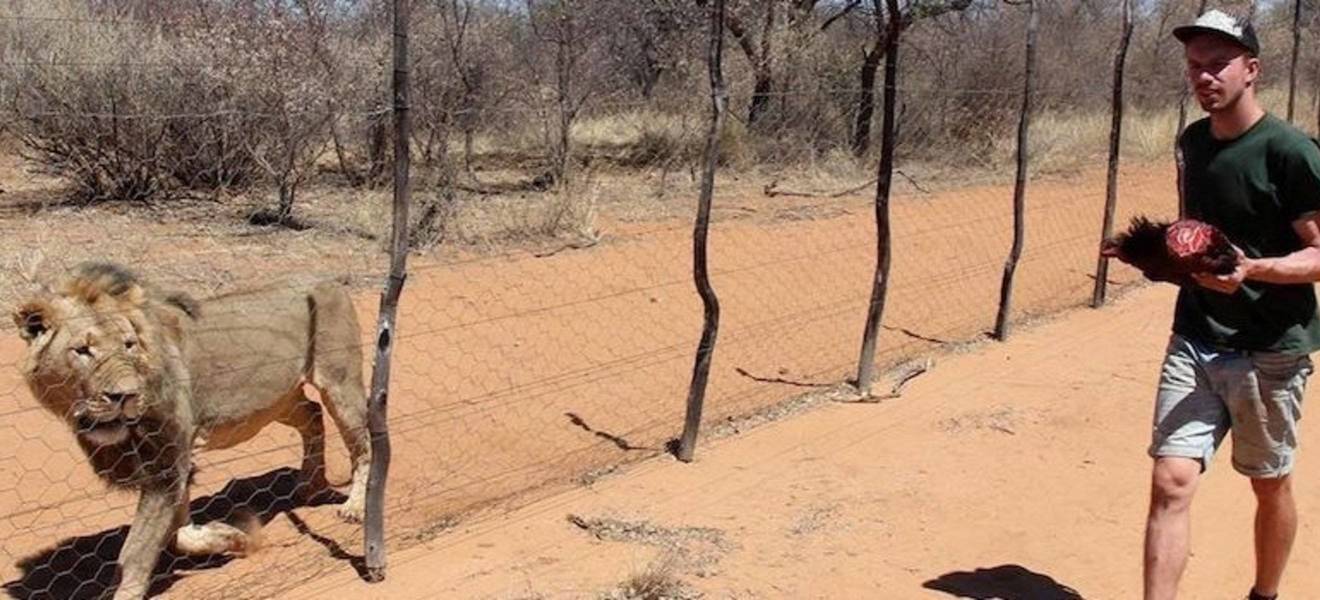
What's the matter?
The deserts and savannah landscapes of Namibia have a unique magic - a great environment to campaign for nature and wildlife protection! In our wildlife project in Namibia you can support endangered species such as the African wild dog, wild cats, leopards, lions, mountain zebras and hyenas.
You work on an 8.500 hectare farm in the middle of the Namibian wilderness. Observe the fascinating wildlife in their natural environment and actively care for individual injured animals that are currently on site as well as species threatened with extinction!
The team of our wildlife project has been committed to wildlife protection since 1978. The operation center is passionately dedicated to the task it has set itself of taking in sick, injured and orphaned wild animals, caring for them back to health and protecting them. The aim is always to release the animals back into the wild if possible.
On the 8.500 hectare farm, the wild animals live as freely as possible and as protected as necessary. Even animals raised by hand - for example if the mother is no longer alive - can be used to life in the bush on the site and prepared for release into the wild. The Animal Wildlife Project has already saved 380 native wild animals. Animals that can no longer be released into the wild remain on the farm. Unfortunately these are the majority of them. The commitment of our volunteers is essential for the work of the team on site.
Your tasks as a volunteer
As a volunteer, you are involved in all daily tasks on the farm: from preparing food and feeding the animals to animal care and keeping the enclosures clean. Together with other volunteers, you will look after the watering holes for the animals, check fences, help with animal observation, take care of horses and, if necessary, ride horses, count wild animals and carry out research work. You can also help out at the Lifeline Clinic or help rehabilitate animals if needed. You will also explore the bushland together and learn how rangers work.
Another special feature is the exchange with the San community, an indigenous people in Namibia. The San regularly visit the farm to give visitors and volunteers an insight into their cultural heritage and to share their skills and knowledge. So you see: it never gets boring on site, because no two days are the same.
An example daily routine in the wildlife project in Namibia
- 7:00 a.m.: Enjoy breakfast together (cereal, toast and fresh fruit)
- 8:15 a.m.: Morning meeting: Details about the daily program are discussed here every day. Afterwards, everyone does a group activity together! Examples could be: food preparation, farm work, feeding tours, cleaning the enclosures, etc.
- 13:00 p.m.: Lunch in the "village", free time and opportunity to rest for work in the afternoon
- 15:15 p.m.: Group meeting: activities for the afternoon are discussed.
- 15:30 p.m.: Volunteers start their afternoon activity, e.g. preparations for the afternoon feeding tour, farm work, research, etc.
- 19:00 p.m.: Dinner together and time to end the evening together, for example.
Activities after work can look like this:
Listening to San Bushman stories under the stars, lions roaring in the background, night rides if anyone wants to join in, Junior Ranger is a small program where children can spend a night outdoors with the APU and join a patrol:
Junior Rangers are of course safe. They sleep in tents, on the ground, on thin sleeping mats and in sleeping bags with a blanket. You are allowed to bring additional bedding if you wish.
The team at the deployment site expects you to have team spirit, a sense of responsibility and a willingness to actively contribute. The team needs to be able to rely on you being able to lend a hand, day or night, if necessary.
How close do I get to the wildlife?
The site is not a petting zoo! The goal is to release as many animals as possible back into the wild. At no time can you be guaranteed direct contact with animals. The lions, leopards, wild dogs and hyenas are too large and therefore too dangerous to come into contact with safely.
We can promise you one thing: a lion's roar sounds just as beautiful in a safe place behind the enclosure as it does in the enclosure itself - you can even enjoy it a lot better because you can close your eyes.
Even if the animals appear "tame", they are still wild animals. Please treat her as such. This is the only way you can observe how, for example, a cheetah sneaks up on its prey while getting used to the wild and maybe even kills it successfully. Animal behavior as it should be: as free, natural and wild as possible!
There can be no guarantee that young animals will be on the farm at any time. No predators are bred on the farm. This is prohibited by law and contradicts the philosophy of the project as well as that of RGV. Contact with large predators such as lions, leopards, wild dogs and hyenas is prohibited by law in Namibia in the interest of animal welfare.
Accommodation Catering
Volunteer Village in the Wildlife Project
On the farm you live in our volunteer village, which is about 800 m from the farm buildings. Your accommodation is a wooden house that you share with three other participants (of the same sex). Showers and toilets are outside the cottages. The Wildlife Project provides towels and bed linen. The village has a solar system and each cottage has a solar light and a small safe.
Since there is no electricity in the cottages, cell phones, laptops and cameras can be charged in a room on the farm.
There is now also free WiFi at both the Volunteer Lapa and the restaurant at Harnas Guest Farm. However, it can sometimes be a bit wobbly. So if you want something faster, you can buy vouchers worth N$50 (approx. €5) at the kiosk to surf or make phone calls.
Location
Gobabis
Discover the animal-rich endless savannah landscape! On one side the Atlantic Ocean, on the other South Africa, Botswana, Angola and Zambia. Namibia is a peaceful and friendly country with spectacular wildlife. The Namibian sky protects wild lions, monkeys, antelopes and other impressive animals under its wide tent.
8.500 hectares of farmland are waiting for you in Gobabis. In the midst of this natural beauty stands our Wildlife Farm, whose dedicated animal welfare team is dedicated to protecting this very wildlife. Here you will see rescued lions and nursed kudu that have found their way back into the wild. With your binoculars you can spot rare bird species such as the African hoopoe. The Wildlife Orphanage is a paradise that you will surely carry in your heart forever!
In addition to various animal projects and the on-site life-saving veterinary clinic, the Wildlife Farm ties in with the San and provide employment to South Africa's oldest ethnic group. In addition, the pre-school established by the farm creates a foundation for young San children.
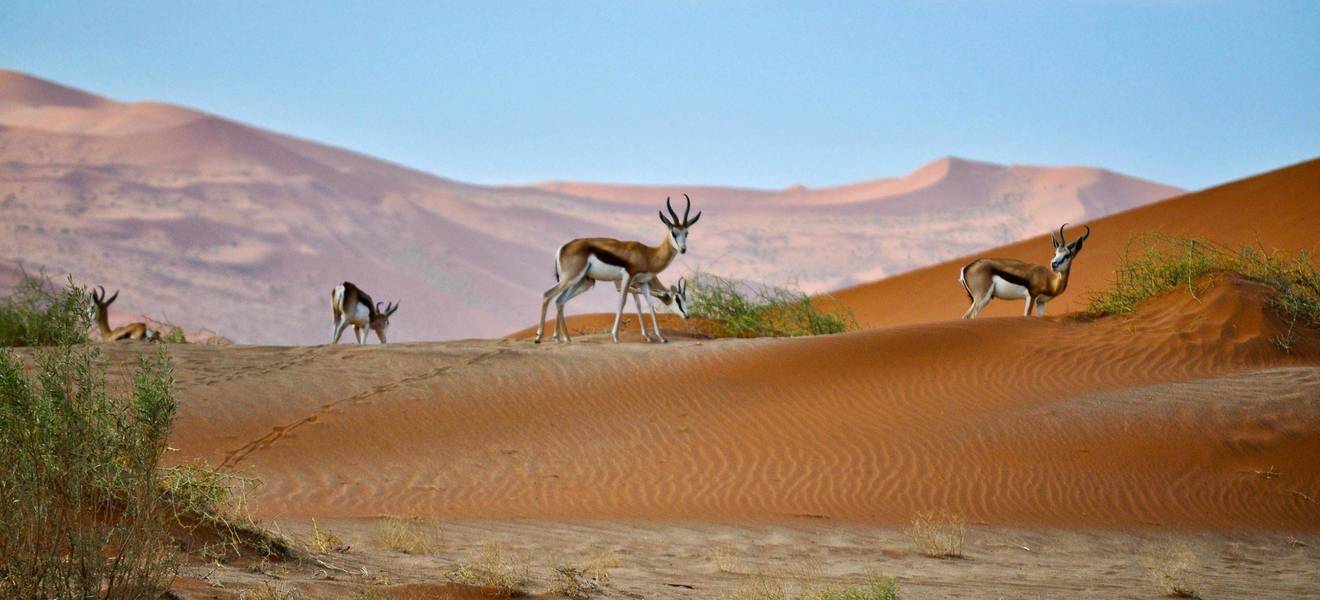
Your free time in Gobabis
Since your accommodation in the volunteer village is in the middle of the Kalahari Desert, you have the best opportunity to explore the surrounding bushland in your free time. The mixture of meter-high camel thorn and evergreen acacia bushes give the area around Gobabis a bizarre beauty that is definitely worth exploring.
In the Volunteer Village itself, there are scenes in your free time that you probably only know from nature documentaries. You can marvel at baboons, giraffes, leopards, lions and many other African wild animals up close. If you prefer tame animals, the countless cats on the premises are guaranteed to be happy to be petted.
At the "Lapa", the central meeting point of the village, you will meet volunteers from all over the world. Every evening and especially on the weekends, you can sit here with a colorful, international crew of volunteers and eat, drink or cool off in the African desert heat with a dip in the pool.
On Saturday evenings you can look forward to particularly festive braai nights. There you will have a typical Namibian dinner, there will be celebrations and dancing - all under the beautiful African night sky. As part of the evening volunteer activities, there is the opportunity to listen to “San stories under the stars”, which offer interesting insights into traditional San life.
Transfers take place once a week, every Monday, to and from Harnas (from Windhoek or the airport).
On-site procedure
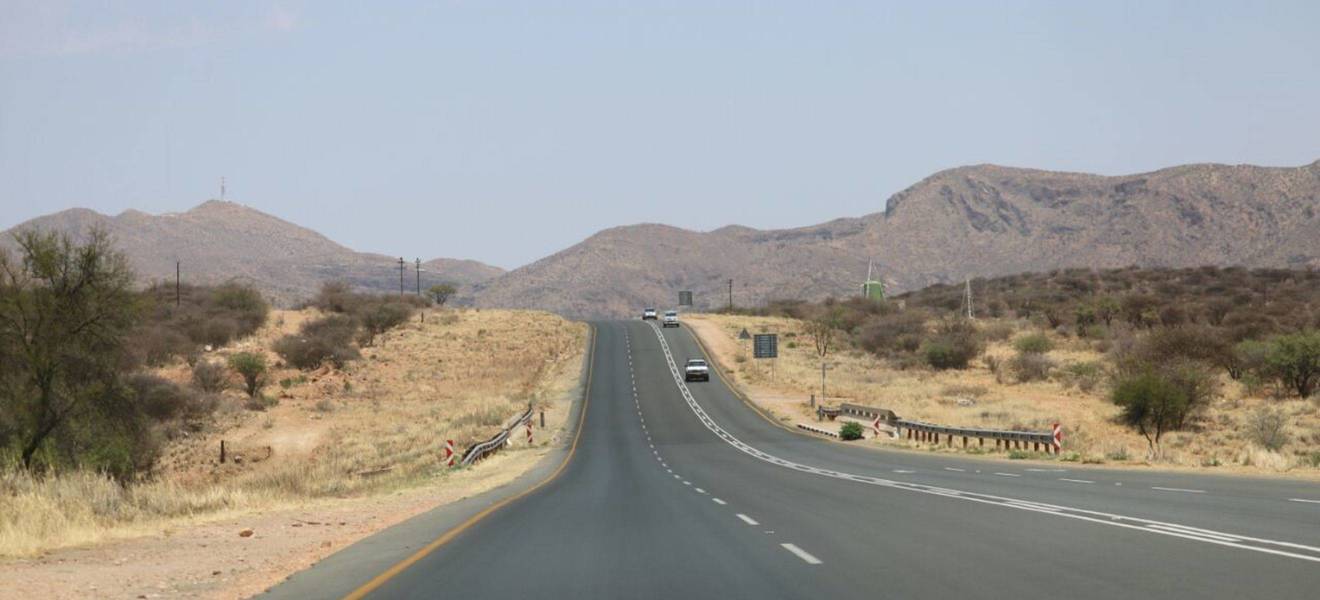
Arrival in Windhoek
After your landing in Windhoek, a member of our RGV team will be waiting for you at the airport. The transfer always takes place on Mondays. If you arrive on a Sunday, you will drive yourself to your first accommodation (e.g. Chameleon Backpacker Lodge).
It is 300 km to the farm, but it may take more than three hours to arrive due to various stops. Rest a bit and admire the grandiose landscape that passes you by!
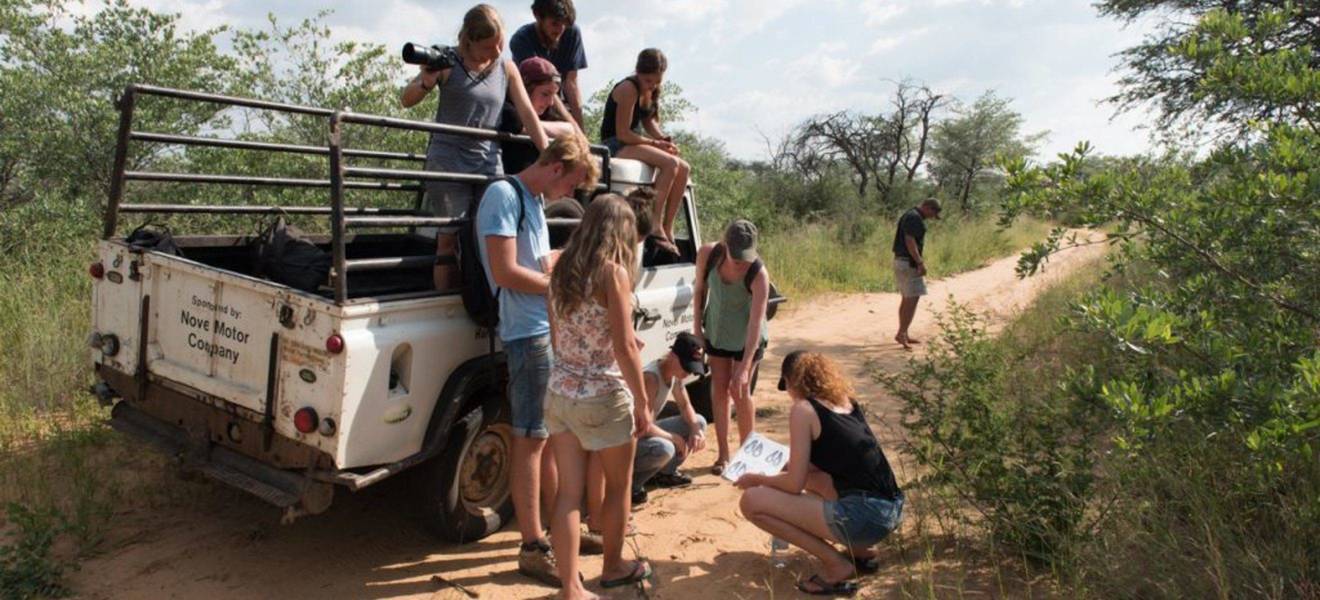
Orientation program in Damaraland
After your arrival at the project, your local contact will show you the accommodation and facilities in the volunteer village. The next day is followed by a comprehensive introduction where you will learn interesting facts about the background and history of the deployment site. House rules and the code of conduct are also explained and the project is discussed and prepared.
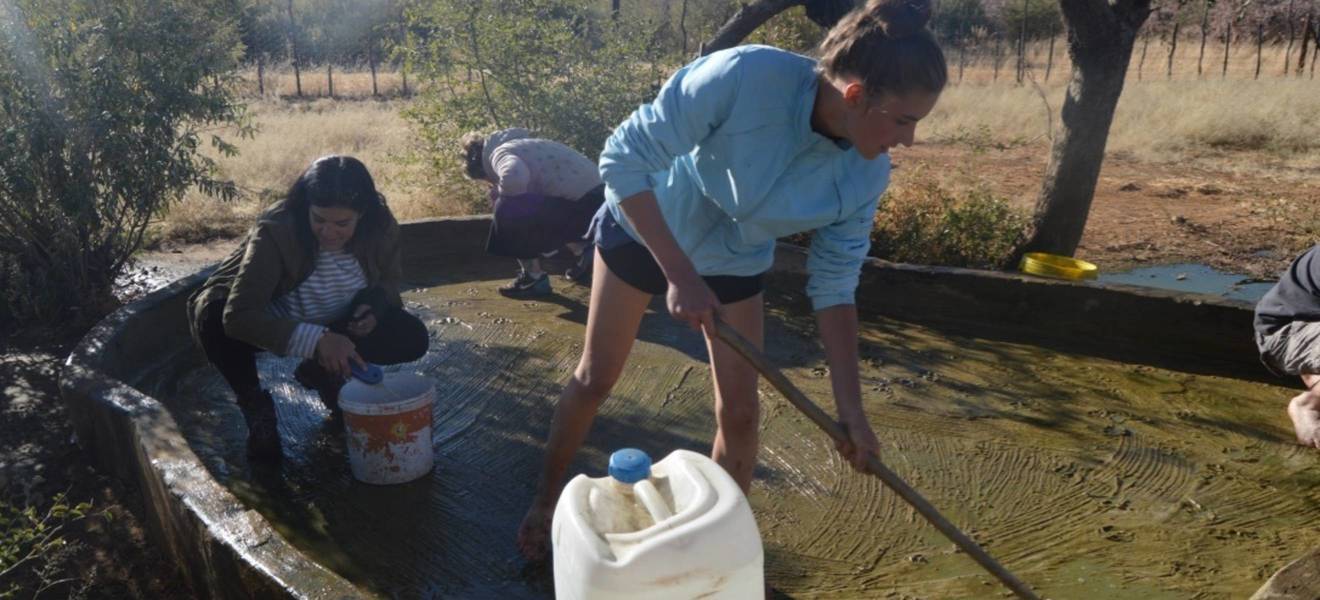
Your first day in the project
As soon as your orientation program is complete, you can start your project work. Depending on how much previous knowledge you have, you will slowly be introduced to the work or you will soon be assigned your own tasks.
Pricing
-
2 weeks of participationbase fee€ 1.590, -
-
up to 10 weeks respectivelyextension week€ 550, - / week
included
Services
Before departure
- Individual advice and support from our trained RGV team in Munich
- Organization including placement in the project and coordination of your stay on site
- Assistance with preparation: visa, health care, travel insurance, etc.
- Non-binding flight advice
- Travel ABC with packing list for your travel preparation
- RGV t-shirt
On site
- Orientation program with the team on site
- Support and guidance from the on-site team
- RGV 24h emergency number
- Project t-shirt to wear during on-site activities
- Transfer from Windhoek to the project site on the agreed arrival and departure days
- Meals: breakfast, lunch and dinner
After return
- Participation confirmation of your voluntary commitment
- Reflection course on your experiences abroad
- Evaluation sheet and optional feedback discussion
not included
Services
- Round trip
- Private expenses on site
- Excursions with microlight flights
- Travel and cancellation insurance
- Visa and Vaccinations
- All nights outside your agreed accommodation
- Public transport and extra transfers
- Drinks
Individual
Recommended additional offers
& must-haves
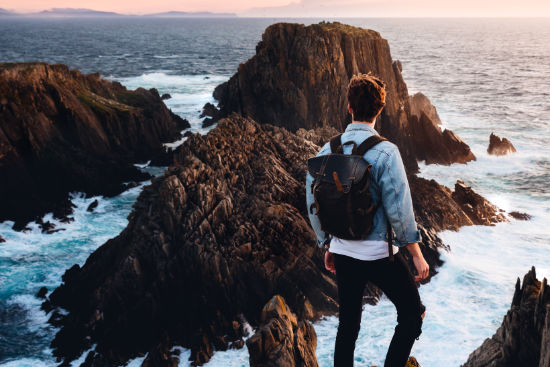
Would you prefer to stay in a single room? Are you vegan or do you have special requests for food? Or do you want to do some cool trips with other volunteers in your free time and explore the country?
With us, you benefit from a variety of optional additional services that you can add individually to your booking, depending on your preferences.
Cheap flights with our flight partner thanks to volunteer rates.
Would you like to receive a cheap flight offer for your stay abroad that is perfectly tailored to you? After you have successfully registered, you can have a non-binding offer created.
The excellent rates for volunteers, students and young people are a great advantage. Arrival times and flight time changes can also be sent directly to RGV upon request, so that our RGV teams in the destination countries are always informed about your arrival times.
These special tariffs give you special added value:
- maximum flexibility for rebookings and cancellations
- generous baggage allowance
- Additional discounts on one-way flights: The new volunteer tariffs include attractive discounts to reduce your financial burden on one-way flights (e.g. for stopovers, project or country combinations).
Benefit from the 4 in 1 ERGO travel insurance.
You can easily book the long-term travel protection of ERGO Reiseversicherung after you have registered. You will receive the links to this automatically after a successful registration.
The following building blocks are included:
- Health Insurance
- Comfort protection: accident, liability and interruption insurance
- Travel insurance
-
Two tools to get you started on your personal developmentPersonal development introductory courseFree of charge
Gobabis
Team
site
The The wildlife project in Namibia began as a livestock farm when an injured vervet monkey came to the farmers in the late 80s. This was actually the starting signal for today's wildlife project, which has been providing a contact point for injured animals from Namibia and neighboring countries in southern Africa for over 30 years.
The founder now lives mainly on Naankuse for health reasons and is rarely on Harnas, but there is a great team that fills the project with life.
These and up to 15 other volunteer coordinators take care of you and the interaction of all volunteers on site. The animals and their needs have the highest priority. Coordinators are always on site in the office and are the first people you will meet on the farm.
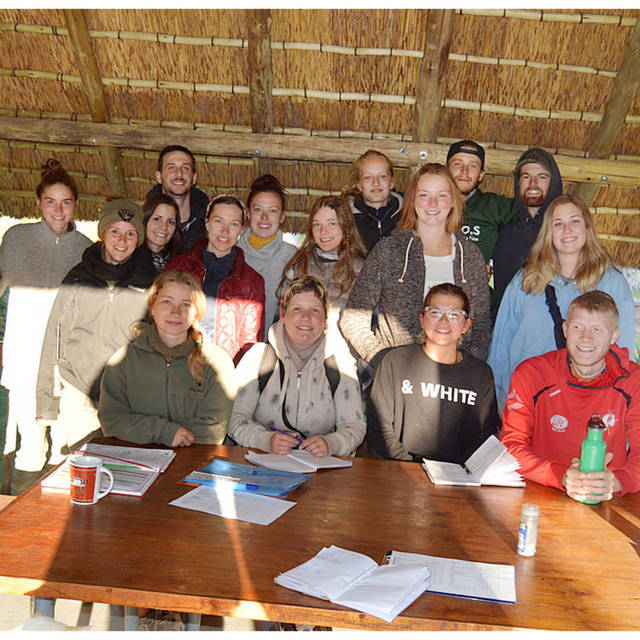
Volunteers talk about their experiences Joint commitment - big impact!
Volunteering Wildlife Namibia Experience Report
No two days are the same and you are constantly having new experiences because something new is always happening. It definitely won't be boring! When you arrive here you are told: “expect the unexpected” and this motto is pretty accurate.Field report from the wildlife project in Namibia
I was amazed at how much they care about the animals and how much they care about making their lives as pleasant as possible.Namibia Wildlife Resort Review
The highlights of life on the farm were certainly the game drives that we were able to go on a few times and the excursions on which I was sometimes allowed to accompany the owner of the farm. Many unforgettable things happened.My experiences as a childcare and wildlife volunteer in Namibia
My time in Namibia was indescribably beautiful for me and I would recommend it to anyone! I would do it again anytime.Experience report in the wildlife project in Namibia
Even before we left, we were well informed by RGV about our arrival at the project.My volunteer work in the wildlife conservation project in Namibia
...for the time I was there in Africa, I lived a completely different life and could just forget all the worries from home. I met so many great people (and animals) and I didn't want to go back.My volunteer work in a wildlife conservation project in Namibia
We arrived after dark and the first thing I noticed when I got out of the car was the roaring of the lions. We were there and it could finally start!
RGV
FAQ
to the project
What are the project fees used for?
Although we are a non-profit organization, there are costs associated with volunteering abroad. Find out here, why volunteering requires money and what your project fee is used for.
Which visa do I need for Namibia?
For Namibia you can apply for a free tourist visa upon entry at the airport. This is valid for 90 days.
What language skills do I need for the project?
In order to be able to communicate well with the team on site, you should definitely have good English skills.
What vaccinations/ health precautions do I need?
If you are traveling from a yellow fever area, you need a yellow fever vaccination. Otherwise there are no compulsory vaccinations.
We generally recommend a consultation in a practice for travel and tropical medicine.
You can get general information about recommended health care and vaccinations online Center for Travel Medicine as well as on the side of Foreign Office.
Is there an age limit for the project?
Volunteers between the ages of 18 and 45 can take part in the project.
What are the requirements for the animal welfare project?
There are no special requirements for participation. What is important is having fun working with animals and being interested in animal welfare. Good physical fitness is often an advantage.
What do I have to bring?
- Waterproof jacket and rubber boots (from September to April)
- Cold/warm weather clothing (depending on season)
- Comfortable walking/hiking shoes, sandals or flip-flops
- working gloves
- Swimming suit, towel for the pool
- a daypack is enough.
- Sun protection (headgear, sunscreen,...)
- Mosquito repellent and mosquito net
- Binoculars and flashlight
- Alarm clock
- Sleeping bag (from May to August)
- Batteries
- Belts
The on-site team provides work clothes that you must wear during your volunteer work.
What do I have to consider as an LGBTQ person?
Please be aware that homosexual acts are considered undesirable in many countries in Africa, Asia and Latin America and are even punishable by law in some places. In general, people who are identified as queer are often exposed to hostility.
For example, get information from Foreign Office about the exact regulations in your destination country.
Ready to get involved as a volunteer in Namibia? Start your adventure abroad with Rainbow Garden Village!
Rainbow Garden Village has been offering volunteer work and internships abroad since 1999. What started as a small student initiative in Ghana has now grown into an organization with over 250 projects around the world.
You can be sure that your work as a volunteer will be an unforgettable experience. Bring your commitment and your knowledge to do good locally - and at the same time benefit from the unique experiences that will promote your personal development.
Become part of our RGV community!
We look forward to you.
RGV
Your way
to the volunteer
1
Choose your volunteer project and register online.
2
We will review your application and confirm your participation.
3
Prepare for your assignment online or in our preparatory seminar in Munich.
4
Here we go! During your volunteer work, we will support you at any time with our on-site team.
More projects you too might be interested
Are you not sure yet? Think about whether a spontaneous assignment as a volunteer abroad is the right choice for you or whether you would like to Voluntary social year (FSJ) abroad want to decide.
With RGV you achieve flexible volunteer work in different countries worldwide. Maybe there is one too Internship abroad the ideal choice for you to gain valuable experience abroad.
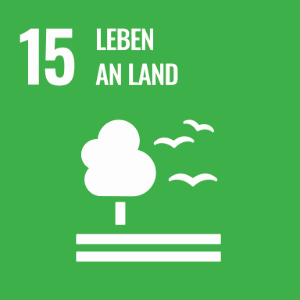
South Africa | wildlife

Thailand | wildlife
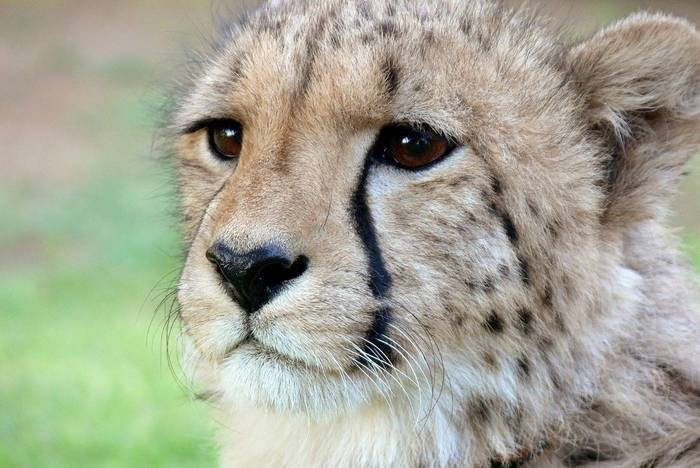

South Africa | big cats
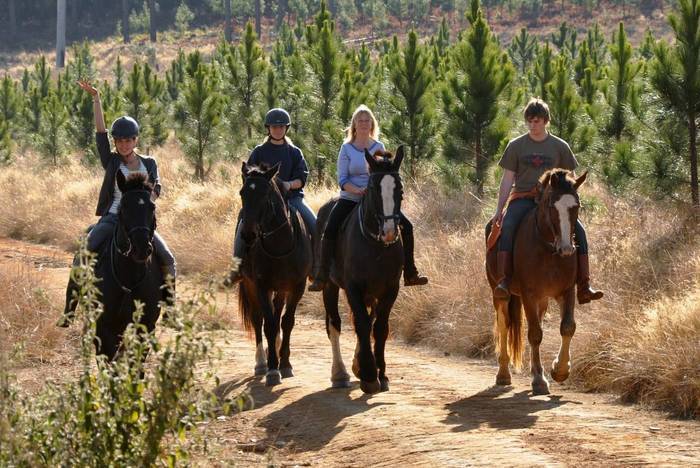

South Africa | horses
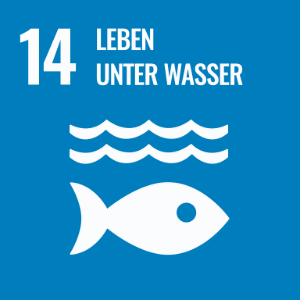
South Africa | Birds & Penguins

South Africa | dogs & cats
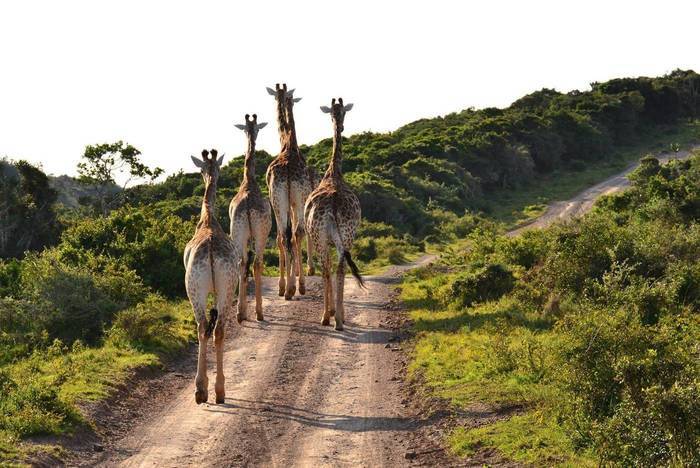

South Africa | wildlife
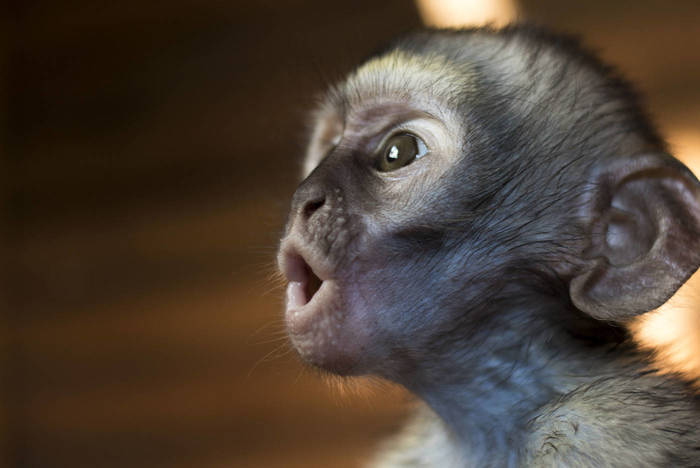

South Africa | Primates & Monkeys
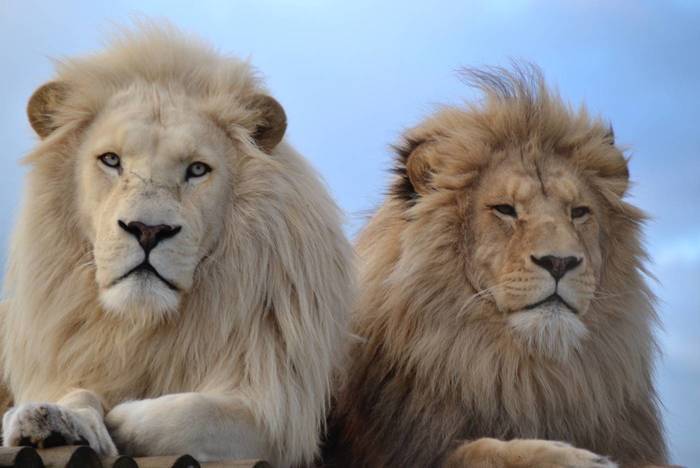

South Africa | big cats
